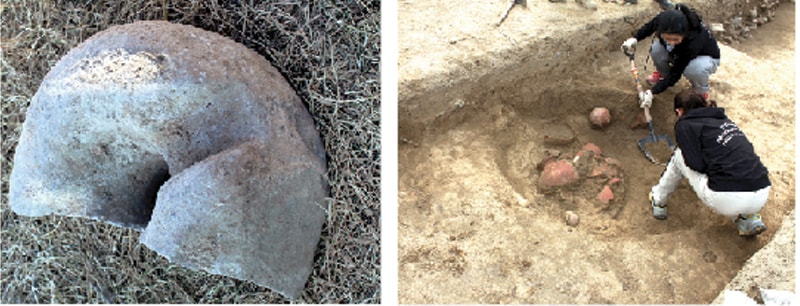
TAXILA: Researchers from three universities in China have in collaboration with the Punjab Department of Archaeology excavated a prehistoric site located about 18km northwest of Taxila and made major discoveries including pottery, terracotta, stone and iron objects.
According to officials of the Punjab Department of Archaeology, the site which belongs to the Harappa and Indus Valley civilisations and dates back to 2500 BC was excavated and explored by three archaeological teams including six researchers from the Hebei University Shijiazhuang, six researchers from Nanjing University and two researchers from Hubei University Provincial Institute of Cultural Relics and Archaeology who were led by Professor Tang Zihua of the Geological Research Institute, Chinese Academy of Sciences, Beijing.
They said the teams excavated the site over three months.
Punjab Department of Archaeology representative Abdul Nasir Khan told Dawn that the excavation teams have discovered a number of clay pots, beads of various material including stone and crystal, iron objects including hooks, tools made of stone, door locks made of stone, pieces of bangles made of bone, glass and ivory which date back to between 1700 and 2500 BC.
Discover pottery, terracotta, stone and iron objects
He said that part of the site is from the Harappa Civilisation, making it prehistoric.
He explained that the site was studied by various archaeologists including former director general of archaeology Dr Mohammad Rafique Mughal and Dr Shafiqur Rehman Dar. However, this is the first time archaeologists have conducted an excavation of it.
Mr Khan said the discovered antiques will undergo extensive carbonic studies to ascertain their exact history.
He explained that under the memorandum of agreement signed between Islamabad and Beijing regarding the strengthening of mutual cooperation in the field of history in the context of the China Pakistan Economic Corridor, this is the first excavation conducted by Chinese archaeologists in Pakistan.
He said more excavations will be conducted on this site and others across the country under the agreement.
Mr Khan said Chinese scholars and researchers are utilising modern techniques and tools which make excavations successful and that the study of the discovered items will lead to a better understanding of the history of the site.
The discovery of iron objects at the site near Bhalot is proof that in 2500 BC, inhabitants of the area had access to iron and were also aware of its utilisation, he said.
Mr Khan added that the discovery of clay pots shows the inhabitants of the area at the time may have used them to store water and other items.
The discovery of various pottery objects and engraved stone items shows the craftsmanship at the time, he said.
Published in Dawn, January 30th, 2019














































Dear visitor, the comments section is undergoing an overhaul and will return soon.